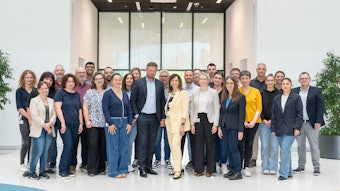When the far-reaching and ambitious Registration, Evaluation, Authorization and Restriction of Chemical substances (REACH) legislation was proposed, many people believed that implementation was unlikely due to the relative complexity and stringent terms. When the pre-registration stage of REACH implementation began June 1, 2008, these same people hoped that their businesses would be able to adapt to whatever challenges arose—whether rules were enforced as written or evolved as practical issues—but it was clear when pre-registration ended on Dec.1, 2008, that companies’ own implementations would not be easy.
Globally, large chemical companies have been making investments in REACH compliance, and, for the most part, have satisfactorily complied with pre-registration of their chemicals. However, the situation is much more problematic for small and mid-size companies, especially those from non-European Union (EU) countries, not as adept at dealing with the chemical regulatory issues directly. And despite the warning bell that has been ringing for the past few years, many of the latter companies only realized that REACH exists relatively late in the day—and, in fact, they may have been doing business illegally. These companies risk prosecution and a large fine, and must still register or risk being excluded from the EU market.
When such concerns relate to only a few dozens companies, it is easy to penalize those companies. However, the situation is a bit different when it concerns thousands of companies globally. This creates another tangle in an already difficult web. With REACH, Europe has created a legal, bureaucratic monster, and will likely have difficulty keeping it under control. The way the European Commission (EC) and the European Chemicals Agency (ECHA) will manage to give a second chance to companies, without discrediting the whole REACH system that’s been put in place, will be a very interesting issue to follow.
The U.S. is clearly one of the countries most interested in the possible softening of REACH deadlines. Indeed, the EU is a very important market for the American chemical industry, and there is no doubt that a significant percentage of U.S. companies did not pre-register. The U.S. was quite active in lobbying to reduce the scope of REACH as much as possible. But, after 2006 and the enactment of the regulation, the industry was very reluctant to involve itself in REACH, and all decisions concerning pre-registration have been made very late or even not at all. A lot of companies were thus still wondering, in the middle of November, what might be the best way to pre-register their chemicals.
Basically, like all non-EU manufacturers of chemicals, U.S. companies had a few choices relating to pre-registration—ask their importing agents to deal with pre-registration, appoint a subsidiary in Europe or create a dedicated subsidiary to be its “Only Representative,” or appoint an independent European professional Only Representative—an intermediate that will be in charge of complying with the administrative procedures of REACH on behalf of a non-EU company. The relative advantage of appointing an Only Representative instead of relying on importers is fundamentally a question of intellectual property law and protection of trade secrets. Indeed, disclosing some sensitive data to importers in order to comply with REACH may be quite dangerous, as the future of that commercial relationship may be uncertain.
As such, many non-EU manufacturers, in particular U.S. companies, have been seduced by the possibility of appointing an independent professional Only Representative. In contrast, Russian and Chinese companies have generally preferred, in accordance with their business cultures, to use or create their own subsidiaries in Europe.
Impact and Influence
As noted, REACH regulations represent a big challenge for U.S. companies. It is an EC regulation, and directly binds only European companies. Nevertheless, as the burden of compliance is on all those who sell into the EU market, all exporters to this market are indirectly bound by REACH. This factor has turned REACH into a global regulation. It is, of course, not the first global regulation, but it is still a fairly new phenomenon on such a large scale.
The harmonization of any U.S. legislation on chemicals with REACH is, therefore, almost mandatory. Many other non-EU countries, including China and Russia, have already started a pre-legislative process toward the adoption of REACH-like regulations. In addition to making compliance with REACH easier for U.S. companies, such legislation would help the U.S. stay competitive on the worldwide market.
The requirement to share studies about the intrinsic characteristics of chemicals is another very big issue intrinsic in REACH. In relation to the quantity and quality of these studies, the U.S. will be one of the world leaders—even if being outside the EU inherently weakens its position. In this regard, forming a consortium would be a very interesting option. If Substances Information Exchange Forums, in which European companies are going to discuss the sharing and performance of studies, are in the strict frame of REACH and thus not open to U.S. companies, those companies will be looking at becoming members of consortia instead—cooperating to carry out and to share relevant studies and the related costs.
As useful as it can be, a consortium is a tool that must be used carefully so as not to become a vehicle that veers down illegal avenues. Indeed, to set up an agreement with competitors in order to establish a common strategy to implement a regulation is not a common business practice, and the temptation to use this framework to “organize” the European market is real—with enough known illegal agreements and violations of European competition law under the guise of such organizations to raise general suspicions that any and every consortia will engage in such behavior. Therefore, U.S. companies should be well aware that they are no more beyond the scope of European competition law than they are beyond the scope of REACH. Indeed, competition law applies regardless of a company’s country of origin, and instead depends on a restriction of competition on the European market. As such, a U.S. company meeting in the U.S. with its European partners can create a restriction of competition in the EU market, and that U.S. company can be prosecuted and eventually sentenced.
Ongoing Tests
REACH pre-registration was the first test. It will now be interesting to follow up on how the U.S. companies are going to comply with the new communication requirements that have been in force since October 28, 2008—the day the ECHA published a “candidate list” of 15 substances (which was reduced to seven in January 2009) to be included in Annex XIV of the regulation, i.e. substances subject to authorization. These substances have been deemed to be very toxic, and the EU’s goal is to encourage companies to substitute less dangerous chemicals. Annex XIV states that if a company exports a product to the EU market that contains more than 0.1% of a substance on the list, that company must inform its importers. Moreover, any European citizen has the right to know if a product contains such a substance, and can request such information by sending a letter to the company whose name appears on the package. That company has 45 days to answer the query.
A failure to answer would lead to a ban of the product on the EU market, following the principle “No Data No Market.” Finally, a very sensitive topic in relation to the regulations has not yet really been openly discussed by companies: how to share the cost of REACH implementation along the supply chain? In other words, who will pay for REACH? The way that companies will try and spread the costs related to REACH, such as any related administrative fees or costs of studies, will be an important legal and commercial issue. The implications of REACH on U.S. companies is already beginning to show, and it will be very interesting to see how U.S. companies deal with the major upcoming issues—particularly registration, costs and forming consortia.
Nicolas Gardères is a French scholar (University Paris-Descartes) and attorney specializing in environmental and European law with the international law firm Denton Wilde Sapte, where he is advising leading global companies on their implementation of REACH. [email protected]










